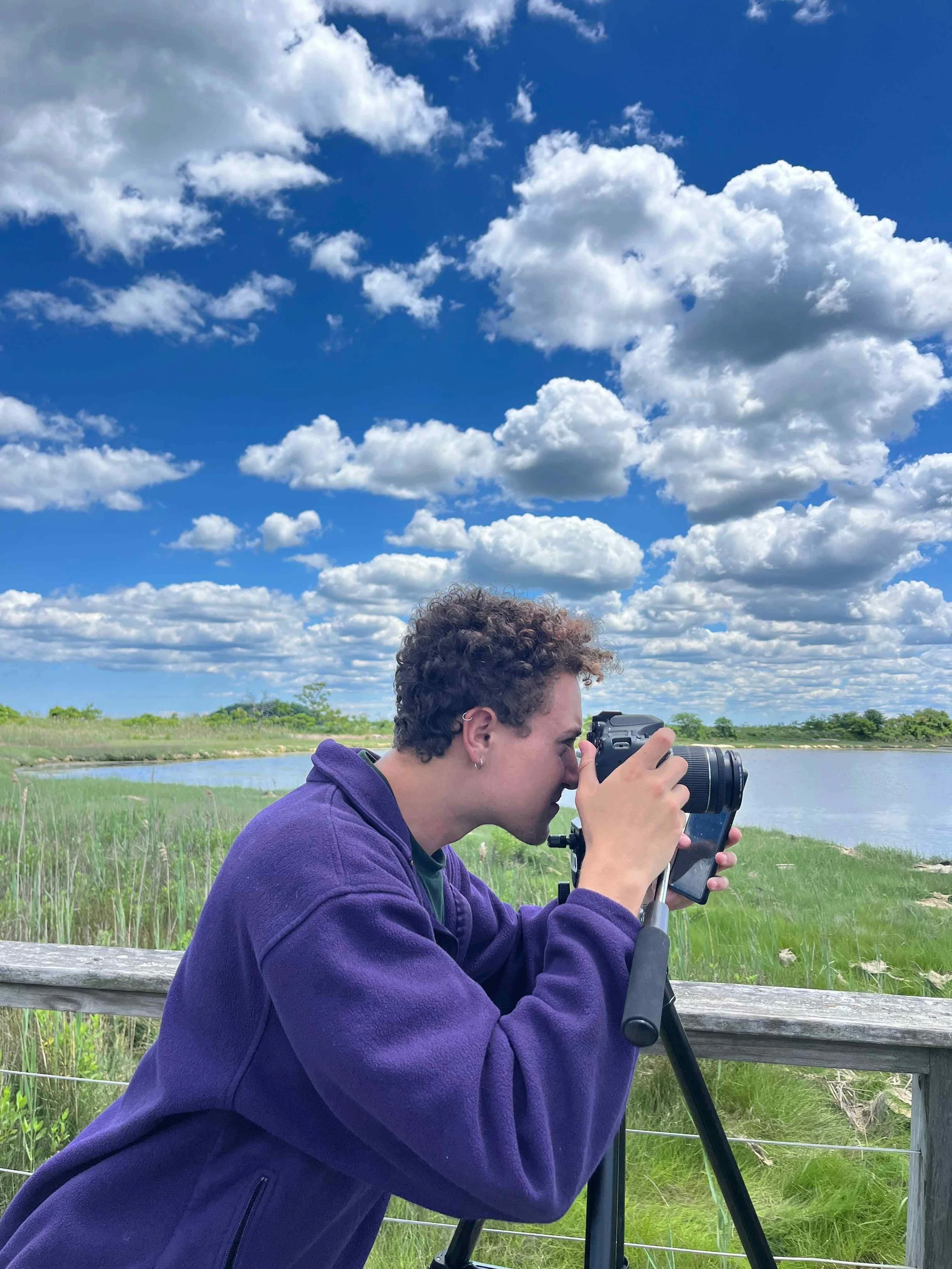
Work Samples
Resilience Corps
Lessons Learned from Rising Tides
Midnight Flood Crawl
Each month, the Resilience Corps publishes a blog post written by one of the fellows on a topic of their choice. For my post, I reflected on the lessons nature offers us in addressing climate adaptation.
My role responsibilities included coordinating a coastal flooding community science project that collected data on flood impacts in nearly 30 of Maine’s coastal communities. However, during the Spring 2025 Flood Season, all the highest tides occurred during the nighttime. To increase visibility of these climate hazards and seize the opportunity to involve volunteers in collecting flood data they might otherwise have missed, I organized a Midnight Flood Crawl. Throughout the evening, we visited several flood monitoring sites in Portland, installing and photographing artwork by six local artists alongside the rising waters.
Vulnerability Assessments
Through my role on the Community Climate Action Team at the Gulf of Maine Research Institute, I contributed to Climate Vulnerability Assessments for Maine’s coastal communities in a variety of ways. I analyzed population vulnerability, assessed the exposure of critical infrastructure to sea level rise, and communicated findings through writing, presentations, and the creation of accessible materials such as this fact sheet series.
Climate Conservation Corps
Salt Marsh Monitoring
Endangered Species Habitat Suitability
As a member of the Climate Conservation Corps, I co-designed a monitoring project to assess the long-term ecosystem health of the salt marshes of the Boston Harbor Islands.
Check out an article I wrote about the project here:
Sea beach dock (Rumex pallidus) is a rare plant species found on the Boston Harbor Islands, often growing alongside eroding bluffs. For my Climate Conservation Corps capstone project, I designed a habitat suitability study to identify potential sites for R. pallidus restoration across the islands.
Here’s the report I wrote communicating
the results of the study:
Boston’s Island Guardians
The Climate Conservation Corps’ was tasked with creating an educational tool to accompany a new webcam installed on Boston Light, the first lighthouse built in the United States. Alongside the activity, I wrote an elementary-level article with background information and original digital illustrations.
Check out the article here:
Communications Library
-
A press release template I created to help communities share their participation in the Coastal Flooding Community Science Project. View here.
-
During my time at the Gulf of Maine Research Institute, I mentored two high schoolers through their Senior Transition Project, investigating how climate change threatens Portland’s working waterfront. Here is the video they made.
-
Here’s a graphic I designed outlining our team’s process for conducting Climate Vulnerability Assessments.
-
I wrote and designed this pamphlet to accompany a training I led on climate impacts in Boston for seasonal park ranger staff of the Boston Harbor Islands.
-
I designed a fact sheet on ocean acidification for elementary students to complement a hands-on tabling activity where the CO2 in participants’ breath changed the color of cabbage juice, a pH indicator.
-
I created this zine to handout during a tabling activity where participants were able to create bug hotels.





